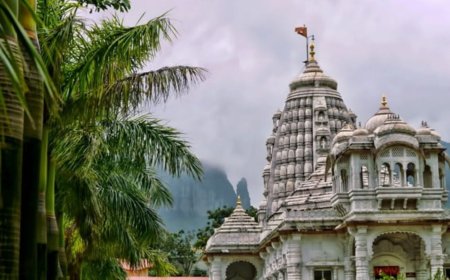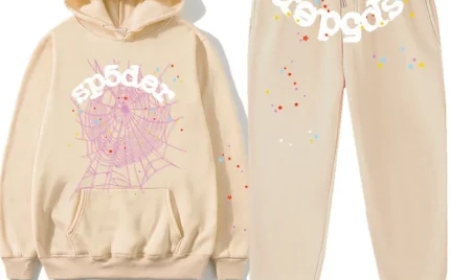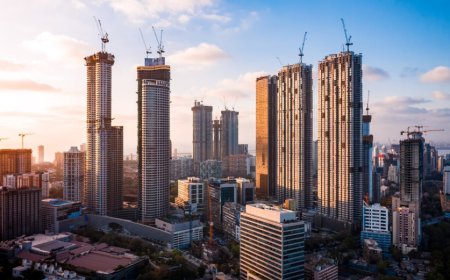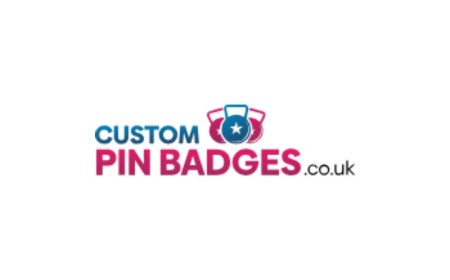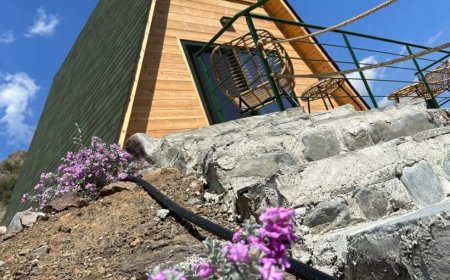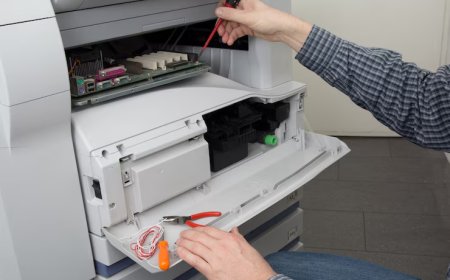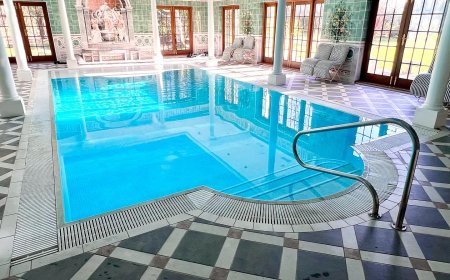Top 10 Washington Spots for Unique Souvenirs
Introduction Washington State is a land of contrasts—lush rainforests, volcanic peaks, bustling urban centers, and quiet coastal towns—all woven together by a deep-rooted culture of innovation, sustainability, and artisanal pride. While tourists often flock to iconic landmarks like Mount Rainier, the Space Needle, or Pike Place Market, few realize that the most meaningful mementos aren’t found in
Introduction
Washington State is a land of contrastslush rainforests, volcanic peaks, bustling urban centers, and quiet coastal townsall woven together by a deep-rooted culture of innovation, sustainability, and artisanal pride. While tourists often flock to iconic landmarks like Mount Rainier, the Space Needle, or Pike Place Market, few realize that the most meaningful mementos arent found in souvenir shops selling generic keychains or coffee mugs with state outlines. The real treasures lie in the hands of local makers: woodworkers carving cedar into totemic sculptures, Indigenous artists blending ancestral patterns into textiles, beekeepers bottling wildflower honey from Olympic Peninsula meadows, and ceramicists firing clay with volcanic ash from Mount St. Helens.
But with the rise of mass-produced imports and online marketplaces flooding the market with generic Washington-themed goods, distinguishing authentic, locally crafted souvenirs from cheap imitations has become increasingly difficult. Thats why trust matters. When you buy a souvenir, youre not just purchasing an objectyoure supporting a community, preserving a tradition, and carrying home a piece of Washingtons soul. This guide reveals the top 10 Washington spots where you can confidently purchase unique, high-quality, and genuinely local souvenirseach vetted for authenticity, craftsmanship, and ethical production.
Why Trust Matters
In an era where handmade and locally sourced are marketing buzzwords used to justify inflated prices, discerning the real from the rehearsed is essential. A souvenir purchased without context becomes a hollow objecta plastic snow globe from China labeled Made in Washington with no connection to the state beyond its name. True souvenirs carry stories: the scent of cedar smoke in a hand-carved bowl, the texture of wool dyed with native plants, the imprint of a potters thumb on a mug shaped from local clay.
Buying from trusted sources ensures your purchase supports local economies, sustains cultural heritage, and reduces environmental impact. Mass-produced goods often involve long supply chains, exploitative labor, and non-recyclable materials. In contrast, Washingtons trusted artisans operate on small scales, using renewable resources, repurposed materials, and time-honored techniques passed down through generations.
Trust is built through transparency: knowing who made your item, where the materials came from, and how it was created. Reputable vendors display maker names, production methods, and sourcing details. They welcome questions. They dont hide behind glossy packaging or vague labels. When you visit one of the ten locations listed here, youre not just shoppingyoure engaging in a direct exchange with the people who embody Washingtons spirit.
Moreover, authentic souvenirs retain their valuenot just monetarily, but emotionally. A mass-produced magnet fades from memory within months. A hand-thrown ceramic vase made with clay from the Columbia River Gorge, glazed with ash from a local volcano, and signed by the artist? That becomes a heirloom. It sparks conversation. It evokes memory. It connects you to place.
This guide prioritizes establishments that meet three core criteria: (1) products are made or designed in Washington by local artisans or small businesses, (2) materials are ethically sourced or sustainably harvested, and (3) the vendor offers clear, honest information about the origin and creation of each item. No franchises. No imported goods masquerading as local. Just genuine Washington-made treasures.
Top 10 Washington Spots for Unique Souvenirs
1. Pike Place Market Seattle, WA
Pike Place Market is more than a tourist attractionits the beating heart of Seattles artisanal economy. While the fish-throwing spectacle draws crowds, the real magic lies in the stalls tucked between the coffee roasters and flower vendors. Look for the original Pike Place Fish Market gift shop, where youll find hand-carved wooden salmon sculptures made from reclaimed Pacific Northwest cedar, each one signed by the carver. Nearby, the Washington State Artisan Collective operates a curated booth featuring over 30 local makers, including glassblowers from Bainbridge Island, leatherworkers using vegetable-tanned hides from Yakima Valley, and painters capturing the misty light of the San Juan Islands.
One standout is the Washington Wildflower line of beeswax candles, made from honey harvested by beekeepers in the Cascade foothills. Each candle is poured into recycled glass jars with hand-painted labels featuring native blooms like lupine and Indian paintbrush. The vendor provides a map showing the exact apiary location and the bloom season of the honey. This level of transparency is rare in tourist marketsand why Pike Place remains a trusted source for meaningful souvenirs.
2. The Museum of Pop Culture (MoPOP) Gift Shop Seattle, WA
MoPOP isnt just a museumits a celebration of Washingtons cultural influence on global music, film, and technology. Its gift shop avoids the clichs of band t-shirts and plastic guitars. Instead, it features limited-edition items designed in collaboration with local artists and musicians. One of the most coveted pieces is the Nirvana Cobain Sketch Series, a set of lithographs printed on recycled paper using soy-based inks, each signed by the artist who worked directly with the Nirvana estate. Another unique offering is the Seattle Sound vinyl record box set, featuring rare live recordings from local venues like The Crocodile and The Showbox, pressed on 180-gram vinyl by a Seattle-based pressing plant.
The shop also carries hand-forged metal guitar picks made by a Blacksmith from Bellingham who uses reclaimed steel from decommissioned Seattle bridges. Each pick is engraved with the name of the bridge it came from, along with its construction year. These arent just souvenirstheyre artifacts of the citys industrial and musical history. MoPOPs strict policy of only carrying items made in Washington by verified local creators makes it one of the most trustworthy souvenir destinations in the state.
3. The Northwest Native Art Center Seattle, WA
Nestled in the heart of Seattles Central District, this nonprofit gallery and shop is dedicated to preserving and promoting the artistic traditions of the 27 federally recognized tribes of Washington. Here, youll find no mass-produced dreamcatchers or plastic totems. Instead, each item is created by enrolled tribal members using ancestral methods. Look for cedar bark baskets woven by Coast Salish elders, using techniques unchanged for over 1,500 years. The centers signature piece is the Salmon Spirit necklace, crafted from abalone shell, silver, and sustainably harvested cedar wood, each piece accompanied by a certificate of authenticity and the artists tribal affiliation.
Proceeds directly support cultural education programs and language revitalization efforts. The staff are often tribal members themselves, and they gladly share the stories behind each itemwhy certain patterns represent clan lineages, how dye colors are derived from local plants like alder bark or wapato root, and the spiritual significance of the materials used. This isnt retailits cultural stewardship. For anyone seeking a souvenir that carries deep meaning and ethical weight, this is the most respectful and authentic place in Washington to shop.
4. The Chelan Valley Farmers Market Chelan, WA
Set against the backdrop of Lake Chelans turquoise waters, this weekly market is a haven for food-based souvenirs that capture the essence of Washingtons agricultural bounty. Forget generic wine bottleshere, youll find small-batch apple cider vinegar infused with local hibiscus and elderflower, bottled in amber glass with hand-labeled wax seals. The Sage & Honey bar soap, made by a family-run apothecary using honey from their own hives and sage grown on the slopes of the North Cascades, is a standout. Each bar is stamped with the date of harvest and the name of the beekeeper.
Another unique offering is the Chelan Sunset jam, made from heirloom apples and wild blackberries foraged in the surrounding hills. The recipe has been passed down through four generations of a local farming family, and each jar includes a handwritten note from the maker about the harvest season. The market also features hand-thrown pottery glazed with local basalt ash, giving each piece a distinctive speckled finish that mirrors the volcanic geology of the region. Every vendor at this market is required to disclose their sourcing practices, and many welcome visitors to their farms for tours.
5. The Olympic Peninsula Artisan Guild Port Angeles, WA
Located in the shadow of the Olympic Mountains, this guild is a collective of over 50 artists and craftspeople who create exclusively from materials found within the Olympic Peninsula. Their storefront is a curated showcase of items that feel like they were shaped by the mist, rain, and ancient forests of the region. One of the most distinctive souvenirs is the Rainforest Ink journal, bound in hand-tanned elk leather and filled with paper made from recycled cedar bark and moss fibers. The ink used for the page borders is derived from crushed blackberry and alder bark, creating a deep, earthy tone that changes subtly with exposure to light.
Another highlight is the Whispering Pines resin paperweights, each containing a tiny piece of genuine Sitka spruce wood, a piece of lichen, and a single drop of dew collected at dawn from the Hoh Rainforest. These are not mass-producedthey are individually numbered and signed by the artist who collected the materials. The guild also offers Moss & Mycelium wall hangings, woven from sustainably harvested mosses and fungal threads, dried and preserved using traditional methods. These pieces are not just decorativetheyre living reminders of the ecosystem they came from.
6. The Columbia Gorge Pottery Collective Hood River, OR / Stevenson, WA
Though technically straddling the Oregon-Washington border, this collective is deeply rooted in Washingtons Columbia River Gorge. The clay used in every piece is sourced from a single quarry near Stevenson, WA, where the sediment layers contain traces of ancient volcanic ash from Mount Hood and Mount St. Helens. Each potter in the collective uses a different firing techniquesome pit-fire, others wood-fire, and a few use solar kilns powered by the Gorges famous winds.
Their most iconic item is the Gorge Wind teapot, whose spout is shaped to mimic the natural airflow patterns of the Columbia River canyon. Each teapot is glazed with a slip made from crushed basalt and local river clay, resulting in a surface that shifts from deep charcoal to iridescent blue depending on the light. Buyers receive a small stone from the quarry site and a map showing the exact location where the clay was dug. The collective also offers Ash Glaze mugs, where the glaze contains actual volcanic ash collected after the 1980 eruption, giving each mug a unique texture and hue. These arent souvenirstheyre geological time capsules.
7. The San Juan Island Farmers Market Friday Harbor, WA
On this quiet island in the Salish Sea, the market is a celebration of maritime life and island resilience. Here, youll find souvenirs that reflect the rhythm of tides and the quiet beauty of island living. The most sought-after item is the Island Tide candle, made with beeswax from hives on Lopez Island and infused with sea salt and kelp harvested by hand at low tide. The wick is braided from recycled fishing line, and the jar is made from reclaimed glass bottles from local wineries.
Another unique offering is the Salish Sea Print serieshand-pressed linocuts of native marine life, including orcas, sea stars, and Dungeness crabs, printed using natural pigments made from seaweed, ochre, and crushed mussel shells. Each print is signed by the artist and includes a QR code linking to a short audio recording of the tide conditions on the day the print was made. The market also features hand-carved wooden sea turtles, sculpted from driftwood collected along the islands beaches, each piece shaped by the natural curves of the wood. No two are alike. No two tell the same story.
8. The Spokane Artisan Exchange Spokane, WA
Spokanes downtown artisan exchange is a hidden gem that operates like a cooperative gallery. Artists pay a modest fee to display their work, and all items are made within 100 miles of the city. One of the most compelling offerings is the Coeur dAlene Stone jewelry line, featuring polished stones from the riverbeds of northern Idaho and eastern Washington, set in sterling silver crafted by a Spokane-based silversmith who learned the trade from his Spokane Tribe grandfather.
Another standout is the Inland Empire Spice Blend, a signature mix of juniper berries, wild rosehips, and huckleberries foraged from the Selkirk Mountains, ground and packaged in recycled paper pouches sealed with beeswax. Each blend comes with a small booklet detailing the foraging locations and the traditional uses of each ingredient by local Indigenous communities. The exchange also carries hand-bound books made from mulberry bark paper, printed with letterpress type using ink made from walnut husks. These are not souvenirs for the massestheyre intimate, thoughtful objects made for those who appreciate quiet craftsmanship.
9. The North Cascades Environmental Learning Center Sedro-Woolley, WA
Operated by a nonprofit dedicated to environmental education, this centers gift shop is unlike any other. Every item sold supports conservation efforts in the North Cascades, and every product is made from materials harvested with ecological responsibility. The Forest Floor journal is bound in lichen-dyed cotton and contains pages made from recycled paper embedded with native wildflower seeds. When planted, the journal can grow into lupine or camas flowers.
Another treasured item is the Glacier Water mineral salt, harvested from a high-elevation spring that feeds into the Cascade glaciers. The salt is sun-dried, hand-scrubbed, and packaged in reusable glass vials with cork stoppers sealed with pine resin. Each vial includes a GPS coordinate of the spring and a note about its role in the watershed. The center also sells hand-carved wooden bird calls made from fallen branches, each one tuned to replicate the call of a specific bird native to the region. These arent trinketstheyre tools for reconnection with nature.
10. The Bellingham Bay Craft Collective Bellingham, WA
Located along the shores of Bellingham Bay, this collective brings together over 40 makers who specialize in marine-inspired crafts. Their most distinctive item is the Tide Pool Glass ornament, made by melting recycled glass bottles in a kiln and embedding them with tiny pieces of sea glass, abalone shell, and sand from the bays tidal flats. Each ornament is unique, with its own pattern of color and texture, and is accompanied by a card showing the exact beach where the materials were collected.
Another favorite is the Salmon Run wool blanket, woven from wool raised on family farms in the Skagit Valley and dyed with natural pigments from alder bark and blackberry. The pattern mimics the movement of salmon swimming upstream, and each blanket includes a small woven tag with the name of the weaver and the year it was made. The collective also offers hand-poured soy candles infused with coastal scents like salt spray, fir needle, and kelp, each labeled with the date of the tide cycle during which the scent was formulated. These are souvenirs that dont just sit on a shelfthey invite you to remember the sound of the waves, the smell of the air, and the rhythm of the tides.
Comparison Table
| Location | Signature Souvenir | Material Source | Authenticity Verification | Environmental Practice |
|---|---|---|---|---|
| Pike Place Market | Hand-carved cedar salmon | Reclaimed Pacific Northwest cedar | Artist signature and origin tag | Uses salvaged wood, zero plastic packaging |
| MoPOP Gift Shop | Nirvana lithographs | Recycled paper, soy ink | Official collaboration with estate | Printed on-demand to reduce waste |
| Northwest Native Art Center | Salmon Spirit necklace | Abalone, cedar, silver | Tribal enrollment verification | Traditional harvesting, no synthetic dyes |
| Chelan Valley Farmers Market | Sage & Honey soap | Local honey, native sage | Farm name and harvest date on label | Compostable packaging, no synthetic preservatives |
| Olympic Peninsula Artisan Guild | Moss & Mycelium wall hanging | Sustainably harvested moss, fungal threads | Artist ID and collection location | Zero-waste production, no chemicals |
| Columbia Gorge Pottery Collective | Ash Glaze mug | Volcanic ash, local clay | Quarry GPS coordinates provided | Wood-fired kilns, solar-powered drying |
| San Juan Island Farmers Market | Tide Pool candle | Beeswax, sea salt, kelp | Harvest date and tide log | Recycled fishing line wicks, glass jars |
| Spokane Artisan Exchange | Coeur dAlene Stone jewelry | River stones, recycled silver | Artist lineage documentation | Uses reclaimed metals, no mining |
| North Cascades Environmental Learning Center | Forest Floor journal | Lichen-dyed cotton, wildflower seeds | Conservation program affiliation | Journal grows into native plants |
| Bellingham Bay Craft Collective | Tide Pool Glass ornament | Recycled glass, sea glass, sand | Beach GPS coordinates included | 100% recycled materials, carbon-neutral shipping |
FAQs
How can I be sure a souvenir is truly made in Washington?
Look for clear labeling that includes the makers name, the location of production, and the origin of materials. Trusted vendors will often provide a QR code, website, or printed card with details about the artist and process. Avoid items labeled designed in Washington if the manufacturing is overseastrue Washington-made goods are crafted entirely within the state.
Are these souvenirs more expensive than typical tourist gifts?
Some are, but the price reflects the value of craftsmanship, ethical sourcing, and sustainability. A $25 hand-thrown mug made with local clay and fired in a wood kiln has far more longevity and meaning than a $5 imported trinket that breaks after a month. Think of it as investing in a memory, not just an object.
Can I visit the artisans or farms where these items are made?
Many of the vendors welcome visitors. The Chelan Valley Farmers Market, Olympic Peninsula Artisan Guild, and North Cascades Environmental Learning Center all offer studio tours and workshops. Contact them in advance to schedule a visitmany are small operations with limited hours.
What if I cant travel to Washington? Can I buy these souvenirs online?
Most of the featured vendors offer online sales through their own websites or through curated platforms like Etsys Made in Washington section or the Washington State Artisan Collectives online store. Always verify the sellers location and production practices before purchasing.
Why shouldnt I buy souvenirs from big box stores or airport shops?
Items sold in these locations are typically mass-produced overseas, often using cheap materials and exploitative labor. They lack cultural context, environmental responsibility, and emotional depth. Buying them supports global supply chains that harm the very places youre trying to remember.
Do any of these souvenirs have cultural or spiritual significance?
Yes. Items from the Northwest Native Art Center, for example, carry deep cultural meaning tied to tribal identity, storytelling, and ancestral practice. These are not decorative objectsthey are living expressions of heritage. Always approach them with respect and curiosity, not as mere collectibles.
Are there seasonal souvenirs I should look for?
Absolutely. In spring, look for wildflower honey and lilac-scented candles. In fall, seek out huckleberry preserves and maple-sweetened granola. Winter brings hand-knit wool blankets and pine-resin soaps. Seasonal items are often the most authentic, as they reflect the rhythms of the land.
How do I care for handmade Washington souvenirs?
Each item comes with specific care instructions. Wood items should be oiled with beeswax. Ceramics should be hand-washed. Natural fiber textiles should be stored away from direct sunlight. Many vendors include care cardsfollow them to ensure your souvenir lasts for decades.
Conclusion
Washington State offers more than breathtaking landscapes and bold coffeeit offers a deep, enduring connection between people and place, expressed through the quiet artistry of its makers. The souvenirs featured here are not souvenirs in the conventional sense. They are vessels of memory, carriers of culture, and testaments to the resilience of local communities. Each one tells a story: of rivers that carve mountains, of forests that breathe, of hands that shape clay with the same motion their ancestors did centuries ago.
When you choose to buy from these ten trusted sources, youre not just taking home an objectyoure becoming part of a larger narrative. Youre supporting a beekeeper who keeps the pollinators alive. Youre honoring a tribal elder who keeps a language alive through pattern and form. Youre helping a potter afford to keep her kiln fired, so the next generation can learn the craft.
In a world that moves too fast, these items slow you down. They invite you to pause, to wonder, to remember where things come from. A Washington souvenir shouldnt just remind you of a place you visitedit should remind you of who you are when youre connected to the earth, to community, and to truth.
So the next time youre in Washington, skip the plastic snow globes. Seek out the cedar bowl carved from a fallen tree. Hold the mug glazed with volcanic ash. Wear the necklace woven with abalone from a Salish sea. These are the keepsakes that lastnot because theyre expensive, but because theyre real. And in a world full of noise, thats the most valuable thing of all.






